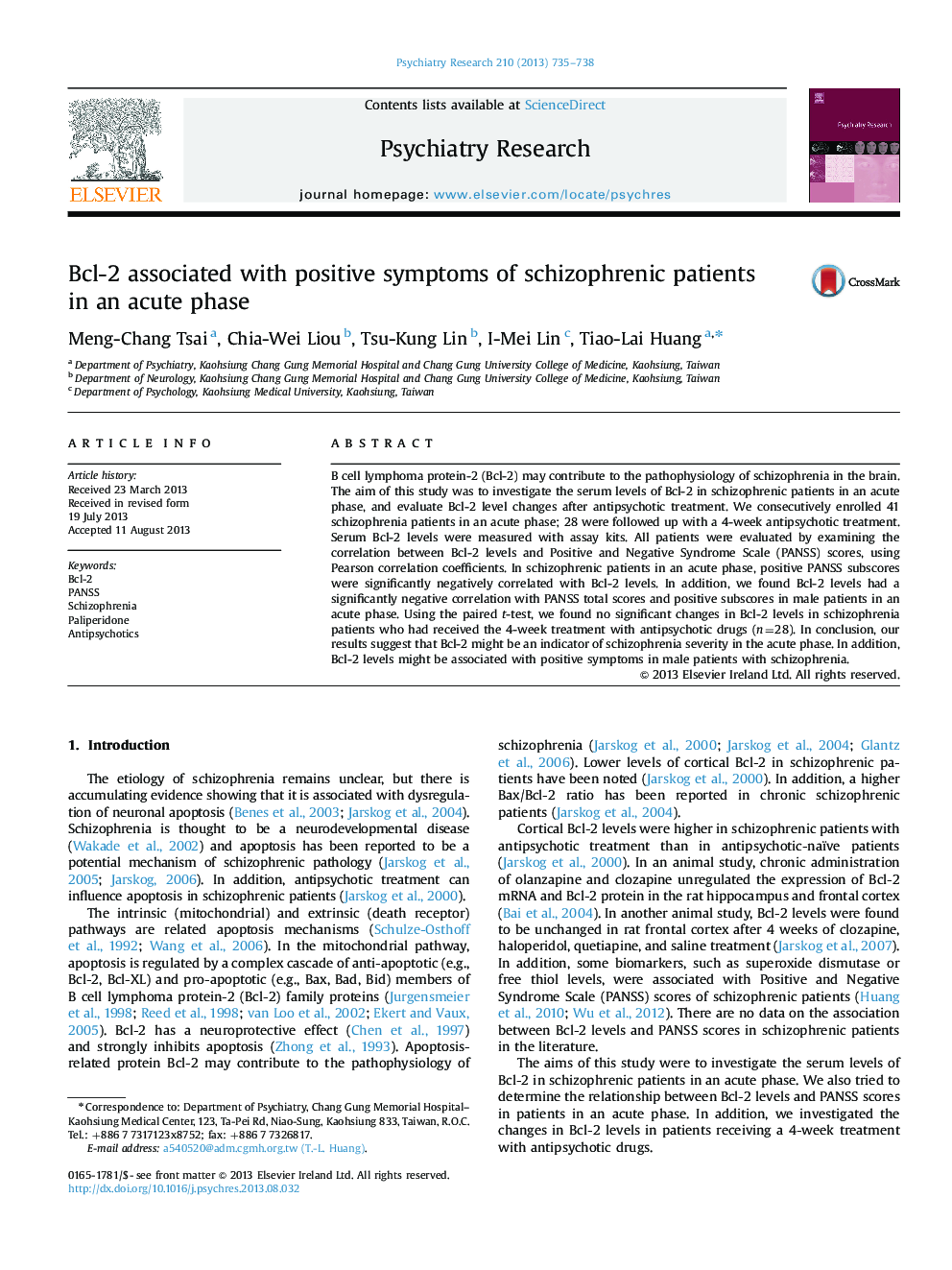| Article ID | Journal | Published Year | Pages | File Type |
|---|---|---|---|---|
| 6815240 | Psychiatry Research | 2013 | 4 Pages |
Abstract
B cell lymphoma protein-2 (Bcl-2) may contribute to the pathophysiology of schizophrenia in the brain. The aim of this study was to investigate the serum levels of Bcl-2 in schizophrenic patients in an acute phase, and evaluate Bcl-2 level changes after antipsychotic treatment. We consecutively enrolled 41 schizophrenia patients in an acute phase; 28 were followed up with a 4-week antipsychotic treatment. Serum Bcl-2 levels were measured with assay kits. All patients were evaluated by examining the correlation between Bcl-2 levels and Positive and Negative Syndrome Scale (PANSS) scores, using Pearson correlation coefficients. In schizophrenic patients in an acute phase, positive PANSS subscores were significantly negatively correlated with Bcl-2 levels. In addition, we found Bcl-2 levels had a significantly negative correlation with PANSS total scores and positive subscores in male patients in an acute phase. Using the paired t-test, we found no significant changes in Bcl-2 levels in schizophrenia patients who had received the 4-week treatment with antipsychotic drugs (n=28). In conclusion, our results suggest that Bcl-2 might be an indicator of schizophrenia severity in the acute phase. In addition, Bcl-2 levels might be associated with positive symptoms in male patients with schizophrenia.
Related Topics
Life Sciences
Neuroscience
Biological Psychiatry
Authors
Meng-Chang Tsai, Chia-Wei Liou, Tsu-Kung Lin, I-Mei Lin, Tiao-Lai Huang,
